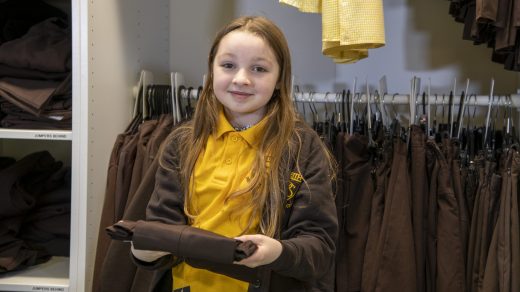Homework: friend or foe?

By Hannah Fowler
Ask any student, parent or teacher about homework and you’re sure to get conflicting opinions. A quick search on Google brings up millions of results with eye-catching headlines: ‘Should homework be banned?’, ‘Is homework a good idea?’, ‘Is homework beneficial?’, ‘Is it worth the hassle?’
“I’ve sometimes heard it said that if a headteacher tells you there’s no bullying in their school, they’re mistaken. But to be honest, the same may well be true of homework. If a headteacher tells you they don’t have any issues with homework in their school, they’re probably mistaken too.”
That’s what one Liverpool City Region secondary headteacher told me when I asked them about this very topic. In fact, they wanted to remain anonymous with their views. For the purpose of this piece, they will be called Anonymous Head throughout.
There’s been many reports commissioned to determine ‘is homework worth the hassle?’. In 2014, the Department for Education concluded that students in year 9 who spent between two to three hours on homework on an average week night were almost 10 times more likely to achieve five good GCSEs than students who did not spend any time on homework.
This is backed up, in part, with the Education Endowment Foundation’s (EEF) Teaching and Learning toolkit, which concludes that homework is more effective in secondary schools than primary, with secondary school pupils gaining +5 months progress compared to +3 months for primary school aged children. However, the EEF stresses that the quality of homework appears to be more important than the quantity of work required by students.
But the benefits of homework are also more anecdotal, improving parental engagement for example, and teaching children the importance of self-development, time management and responsibility.

But it’s a common misconception that schools are required to set homework by the government, or Ofsted. In 2012, then education secretary Michael Gove scrapped the guidelines for home study, following parents’ complaints that too much homework was limiting family time and opportunities for sport and play. The previous guidelines recommended an hour a week for seven-year olds and rose to 2.5 hours per night for students aged 14-16.
Instead, the power was handed over to schools themselves. In 2018, education secretary Damian Hinds clarified: “Just to be clear: schools are not obliged to set homework, and some don’t. But when schools do set homework, children do need to do it. We trust individual school headteachers to decide what their policy on homework will be, and what happens if pupils don’t do what’s set. Policy and approach won’t be the same in all cases.”
Sounds easy enough right? But as Anonymous Head tells me, having an effective homework policy in place takes a lot of thought. Schools need to “ensure that it is set consistently – ideally, even if the teacher is off; they need to ensure that teachers check that the homework is done, and that there’s a robust system in place for dealing with students who don’t do it. It needs to be reviewed and/or marked and there needs to be support for those whose domestic circumstances make it generally difficult, or impossible, to do homework.”
The discussion on the value of homework has become even more complicated since the COVID-19 pandemic began. When classrooms became living rooms and kitchens, it became harder to distinguish homework from the day to day online learning routine. Add to this the complexities and disparities of home life, is it really fair to set homework when some children don’t have a safe space to complete it?
Anonymous Head recalls speaking to one student whose school bag contained little more than a pair of pyjamas and a toothbrush, because they didn’t know where they would be spending the night. Homework was the last thing on their mind.
“For me this has always been an issue: home life, free time, parental support and attitudes to learning vary so much within a single class,” says Matt Nice, deputy headteacher at Devonshire Park Primary School. “There are so many factors and we as teachers and leaders need to be aware of what we are asking our pupils to do at home.”
Adrian Whiteley, headteacher at The Mosslands School, agrees that family engagement, which has been cited as key to positive student outcomes, varies considerably. “We are conscious that some learners are not able to access their work at home for a multitude of reasons,” he explains. “So, we make sure that homework does not mean that learners are left behind. Despite our best efforts however, those in households where barriers exist will find that they are further behind than ever before.”

Over the last two years, we’ve become obsessed with the notion of ‘catching up’ on lost learning and many headteachers are using homework, tutoring and additional lessons to close the gap. “We have to maintain a sensitive balance between expectations and wellbeing, setting work that improves recall and strengthens skills but does not place the burden of ‘catching up’ onto learners and families who are not equipped to do so,” explains Adrian.
With 50% of The Mosslands School cohort eligible for pupil premium and 25% of students with special educational needs (SEN), Adrian says they are still trying to understand the impact that the pandemic has had and will continue to have on students. “What is absolutely clear from my experience is that, over this period, gaps have widened between learners based on their home situation, and that in the return from various states of lockdown and restriction, many students are now struggling to cope with the normal demands of school life,” adds Adrian.
Add to this the pressures of homework and it’s easy to see how some students could feel overwhelmed. “A few headteachers have tried innovative solutions. Some have tried to ‘flip’ homework, so that instead of being a necessary follow-up to what’s happened that day in the classroom, it’s necessary preparation before the next lesson (so teachers aren’t ‘starting from scratch’ with a new topic),” explains Anonymous Head.
“Others set aside time at the end of the day so that students can do their homework in a supervised room in school (in which case, should it really be called homework?). The fact that so many heads are prepared to experiment with different ideas for homework probably shows that the traditional model doesn’t always work as smoothly as we might like!”
The primary school homework debate is arguably even more fraught. While many people can get their heads around the idea of homework for exam preparation at secondary level, many wonder what benefit homework has in primary schools.
In fact, in 2018, US comedian Rob Delaney, who resides in the UK, tweeted: “Why do they give 7-year olds so much homework in the UK and how do I stop this. I want my kid frolicking and drawing and playing football. Who knows more about stopping this madness and can help me?”
“Homework is a graduated approach at Devonshire Park Primary School,” says Matt. “Children collect stickers on a bookmark for reading and reading is the core of our homework. The time expected to spend on homework increases as the children get older, but we always encourage reading at home no matter what age.”
It’s no surprise that reading is the foundation of Devonshire Park’s homework policy. Reading skills allow children to access the breadth of the curriculum, improve their communication and language skills as well as providing a fun and imaginative activity to enjoy at home. More than a quarter of children said they enjoyed reading more in lockdown (National Literacy Trust, 2020).
Homework that is closely linked to what is being taught in the classroom has been found to be more valuable than unrelated or routine homework tasks. Professor John Hattie, a leading researcher in education, argues that homework should be used to reinforce something that has already been learned.

In primary school, this could be learning a set of spellings following an English lesson or practising division at home after being taught a new technique. This reinforcement helps to transfer this knowledge from the working memory to the long-term memory, to ensure learning becomes firmly embedded.
Matt agrees that homework that is properly connected to lessons, works best. “I’ve always believed that homework should be about consolidating what has gone on in the classroom, a chance to practice skills learnt,” he explains.
“Personally, I’d be worried about a skill or topic just left to be done at home. But there is value in any form of skills practice that keeps the mind sharp, applying skills already learnt and revisiting things. There is certainly value in sharing children’s learning with their families.”
Anonymous Head agrees that the case for having some sort of system for homework is compelling. “The national curriculum is, rightly, an ambitious curriculum. There’s lots in it, and ensuring it’s all covered in sufficient depth is a challenge. Some of the more routine aspects, such as learning French vocab or practicing Pythagoras, can be done away from the classroom,” they said.
For Adrian, one significant impact of the pandemic is that Mosslands are now fully prepared to offer structured remote learning to reinforce its homework provision. “We have used our remote learning platform to ensure that all learners have access to the content of all lessons across the relevant subject and key stage,” he explains. “Homework tasks are set at revisiting the lessons, completing activities and reviewing the learning as it has been delivered, rather than breaking new ground.”
Debate about homework, and in fact any element of school life, is important to keep students at the heart of policies that impact their outcomes. Leaders need to do their own homework to find the right balance between the demands of setting work outside of school hours and students’ wellbeing.
“The disruptions to school life of the past two years have really sharpened the mind on the value of homework,” says Matt. “It’s a good time for teachers and schools to re-evaluate what is effective. Children are now more digitally comfortable with accessing set work online, but with this, teachers have seen how children have struggled to fully embed new learning remotely.”
So, is there a right approach to homework? “To be honest, I don’t think there is an answer – it depends on the context, which varies from school to school,” says Anonymous Head.
“A skillful school leader will, after careful thought and consultation, put together an effective Homework Policy which is manageable for students, teachers and leaders, and which maximises the impact on students’ learning.
“But what is right for one school may well not be right for the school down the road. Unfortunately, I think that this particular wheel needs to be reinvented in each individual school. Such are the joys of school leadership!”




